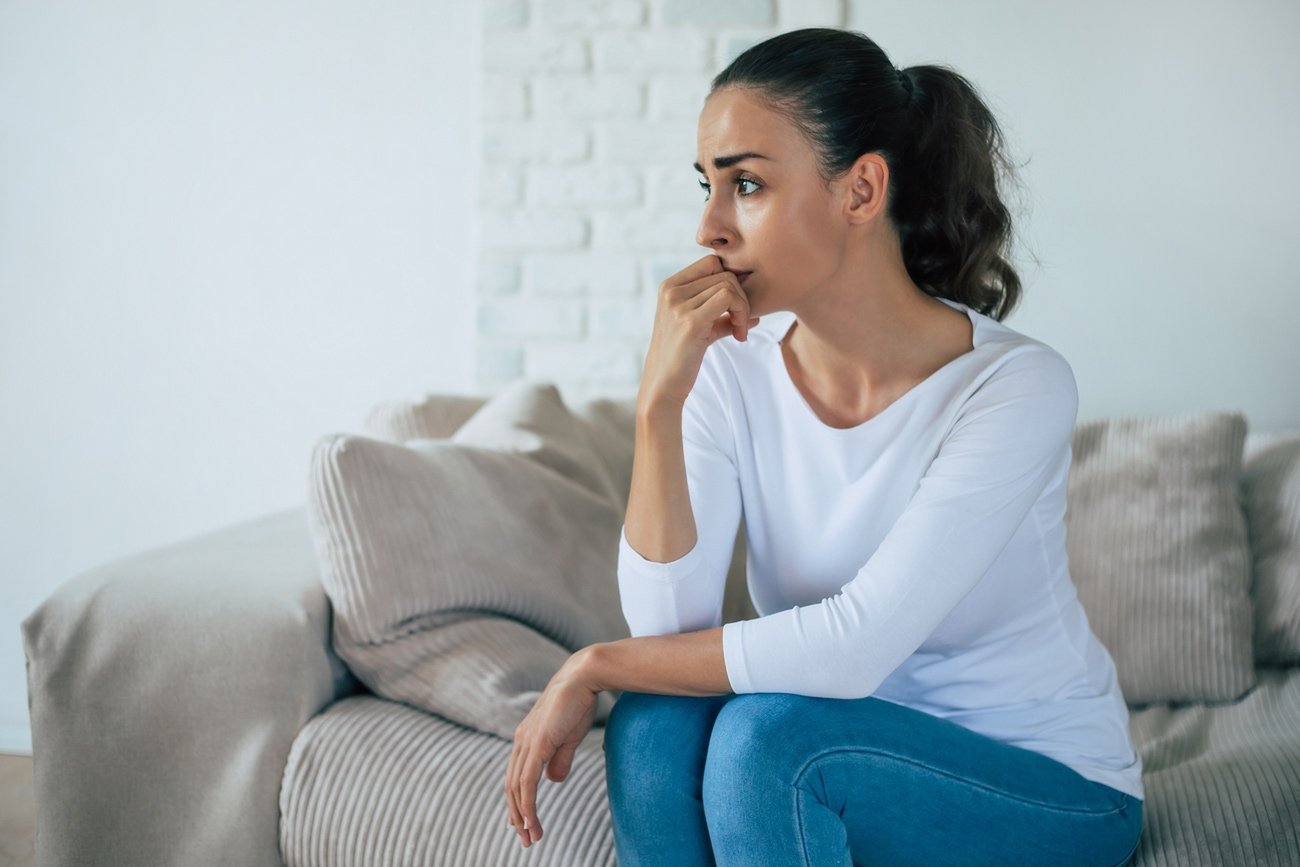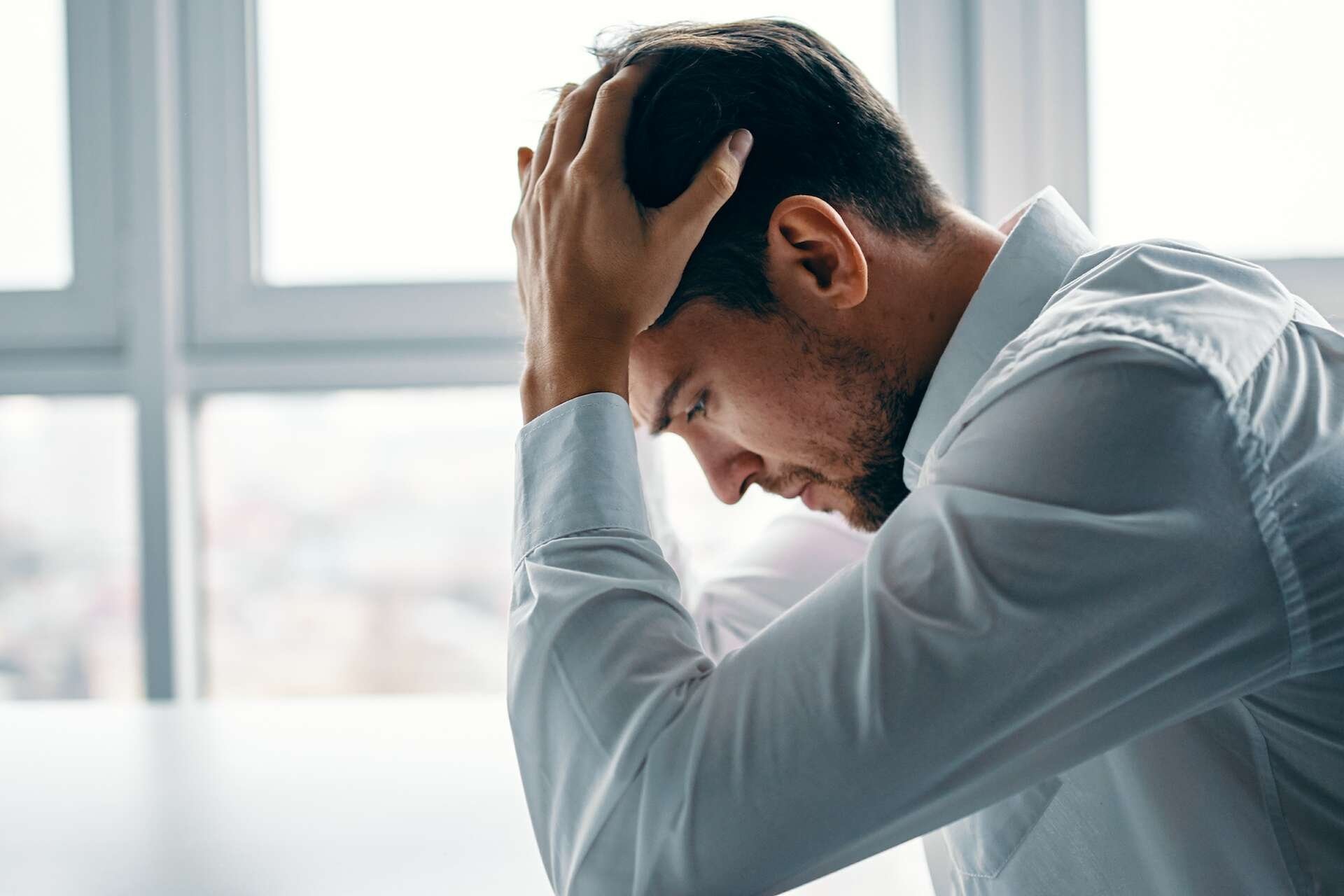Tips to Stop Feeling Anxious and Regain Your Calm
Are you sick and tired of wasting your mental and emotional energy worrying and thinking about some events in your life over and over again? Or of destroying yourself, your performance at work, and your relationships with others at times?
Note: This article is from blogger Kat Truman, who gives us 20 tips to stop feeling anxious and regain our calm.
Let's be honest: being anxious is miserable and takes the fun out of life. It happens because living in the present is impossible when you're always worried about the future or past events. However, it doesn't have to be that way, so let's talk about some tips to stop worrying and regain calm.
The difference between feeling anxious and an anxiety disorder
Feeling anxious is just part of the human experience, and it is a normal stress response. When the stress is gone, the anxiety usually goes away as well, but in the case of an anxiety disorder, the anxiety can still be present even though the cause of the stress has been removed.
There are many anxiety disorders with different characteristics. So, if you feel you might have one, it's best to have your doctor diagnosed, especially because anxiety has become so common. According to research, up to 33% of Americans have an anxiety disorder at some point in their lives.
What can you do to control anxiety?
There is a lot you can do to get rid of anxiety. Every day, there is more and more information about the ways we can manage anxiety.
We should take the initiative to prevent ourselves from worrying. If you have a lot of stress or are prone to feeling anxious, I always recommend creating and following good daily habits. Thus, when something concerns you, you will be able to deal with things. Too many tips can be overwhelming for some people but remember: you don't have to follow every tip on this list, but you can look at it as a list of potentially useful options, so pick and choose what you want and leave the rest.
20 tips to get rid of anxiety
1. Eat the right food
Some foods can make anxiety worse, such as foods high in sugar and processed foods, caffeine, and artificial sweeteners. So, here are some foods you can try instead that can help you reduce anxiety: nuts, fatty fish, eggs, pumpkin seeds, dark chocolate, turmeric, chamomile, yogurt, and green tea.
2. Drink a lot of water
The easiest tip to help you get rid of anxiety is to drink plenty of water. It has been proven that dehydration may exacerbate anxiety, so drink a lot of water.
3. Practice mindfulness
The first thing that comes to mind is the practice of meditation and diaphragmatic breathing; That is, breathe in through the nose, focusing on the movement of the abdomen when exhaling, but some other quick and easy exercises can help you calm down almost immediately.
One of my favorite exercises is called Five Things, and it relies on our five senses — sight, smell, taste, hearing, and touch — and can be done in any order.
For example, you might start by choosing five things you can see, and as you list each item, you should consider each. Then, you might choose four things you can feel, noting each with the same attention to detail, and then complete the exercise by stating elements that accompany the rest of the senses.

4. Get some exercise
Practicing 30 minutes three to five days a week can significantly improve anxiety symptoms. Even 10 minutes of exercise has a positive effect. In one study, exercise was shown to be as effective as medication in treating anxiety symptoms, with intense exercise more effective than low-intensity exercise.
5. Think about and monitor feelings of anxiety
Dr. Judson Brewer has written a book and app called Unwinding Anxiety. New science shows how to break the cycles of worry and fear to heal your mind and discusses focusing on our emotions as a way to process them rather than distracting us or getting away from them.
It encourages people to observe the emotional response in their body as if they are conducting a research project in detail, and note the exact location of their bodily sensations - stomach, right or left side, front or back - with as much detail as possible.
6. Receive Cognitive Behavioral Therapy (CBT)
Cognitive behavioral therapy (CBT) is an approach that uses the periodic association of our thoughts, feelings, and behaviors as a way to control unwanted or troubling thoughts.
One exercise to stop ruminating on unwanted thoughts involves visualizing a stop sign in vivid detail, instructing yourself to "stop" thinking about it, and changing it to positive, encouraging, or even more realistic or likely thoughts.
Another CBT exercise involves challenging negative thinking patterns and beliefs to ensure they are correct by asking yourself some questions:
- Is there evidence for my idea?
- What is the worst that could happen? Is it likely to happen?
- What is the best thing that could happen?
- What is most likely to happen?
- Will this matter a week, a year, or five years from now?
7. Determine what you can and cannot control
Take action where possible. Many of us get upset and anxious about things we can't control, so figure out what you can do and take action. Studies show that taking action reduces anxiety.
8. Feel grateful
Reminding ourselves of the good things in our lives brings us positivity and reduces anxiety because it is neurologically impossible for our brains to focus on negative and positive information simultaneously.
9. Volunteer or do something for others
Helping others gives you satisfaction, reduces stress, boosts your immune system, and can help you live longer.
10. Write your diary using the third person pronoun
I've known that journaling is a valuable tool for helping us manage our feelings, and it can also help us stop worrying and calm down. Naming the feelings you're experiencing is a principle discovered by Dr. Dan Siegel, who has also been found to increase the value of writing a diary.
Dr. Ethan Kross points out in his book, Chatter: The Voice in Our Head, why it matters and how to harness it. He suggests that writing your diary and talking about yourself as if you were someone else - as if it were telling your life - creates additional value by leaving some distance between you and your feelings, allowing you to breathe easier and gain perspective.
11. Spend time in nature
Spending time in nature has been shown to improve attention, reduce stress, improve mood, reduce the risk of mental disorders, and increase empathy and cooperation with others.
12. Spend time with animals
It has been shown that keeping pets, such as dogs and cats, is good for your mental and emotional health. It has a positive effect that enhances our emotional well-being. Also, spending time with your pet can reduce levels of cortisol - a stress-related hormone - and reduce blood pressure. Other studies have also found that animals can reduce feelings of loneliness, as they increase feelings of social support and improve mood.
13. Get enough rest
Getting enough rest can be difficult when we are anxious, but fatigue can worsen the problem. So, stick to a consistent bedtime, keep your bedroom dark and cool, and limit phone or electronic device use before bed.
14. Consume caffeine in moderation
Caffeine is a stimulant that triggers our fight-or-flight response, which is more sensitive to anxiety sufferers. So, consume caffeine in moderation.
15. Show yourself empathy and encouragement
We may often make matters worse by scolding ourselves for our anxiety because we fear it makes us look weak or in danger, and that makes the problem worse. So, stop blaming yourself and be your best friend.

16. Spend time with friends
Healthy friendships bring us together, increase self-confidence and self-esteem, and help reduce anxiety.
17. Restore balance in your life
Set healthy boundaries and priorities, and don't be afraid to enforce them, as no one can do this for you. Appreciate yourself, as you deserve it.
18. Make a plan for your life
You must have a plan. Knowing what to do takes the "what if" question out of your mind, and checking a few things and managing your expectations can help increase peace of mind.
19. Remind yourself of a past event
You can also try to remind yourself of a past event in your life that you were worried about but ended well, and be confident that you will get through this as well.
20. Follow a daily routine
Knowing what to expect can reduce the anxiety and fear accompanying ambiguity. So, establish a routine, make time for yourself, and do as many fun activities as you need, as you will thank yourself for it.
In conclusion
Feelings of anxiety can be hard to manage. So, take charge, pick a few tips, keep going, and see how you feel.
You can ignore what doesn't always work for you and choose something else to try. Tell your friend that you're implementing new strategies, get some support, always tell your doctor your concerns, and don't hesitate to get help if you're having trouble managing things independently.